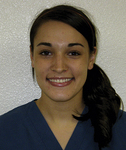CHAPTER 22

Security
Mastery of the content in this chapter will enable the reader to:
• Define the importance of one-way door locks.
• Describe methods used to protect a computer system against embezzlement and hackers.
• Describe methods used to protect the practice against theft from both employees and thieves.
• Identify an effective security system for the practice.
COMPUTER SYSTEM
The computer system is a valuable asset to the practice and must be protected from hackers, employees, and clients. A computer hacker is an individual or group or individuals who attempt to break into programs or networks that are restricted. Once they gain access to the restricted program, the hackers can cause damage to the program or network. This damage can range from changing prices to deleting transactions as well as installing viruses that can cripple the system. Chapter 8 describes several products that can be used to protect a system from hackers. Antivirus software, firewalls, and antispyware should be installed on each computer that is linked to the system to aid in the protection.
THEFT
Theft can occur at any time, either by an employee or by a person who enters the building with the intent to commit a crime. Employee theft can range from embezzling cash to stealing products and/or food. Procedures must be implemented to prevent either situation from occurring. Cash transactions must be recorded immediately, both in the computer and in the client’s record. Receipts must be produced for clients indicating their account has been paid with cash. End-of-day totals must match the cash in the drawer, along with all credit card and check transactions. The deposit must then be double checked by the practice manager, ensuring that the deposit made to the bank at the end of the day matches the end-of-day deposit in the computer. If any discrepancy exists, it must be investigated immediately. Review Chapter 2 for more information on end-of-day reconciliation security features.
 PRACTICE POINT
PRACTICE POINT PRACTICE POINT
PRACTICE POINT What Would You Do/Not Do?
What Would You Do/Not Do?


